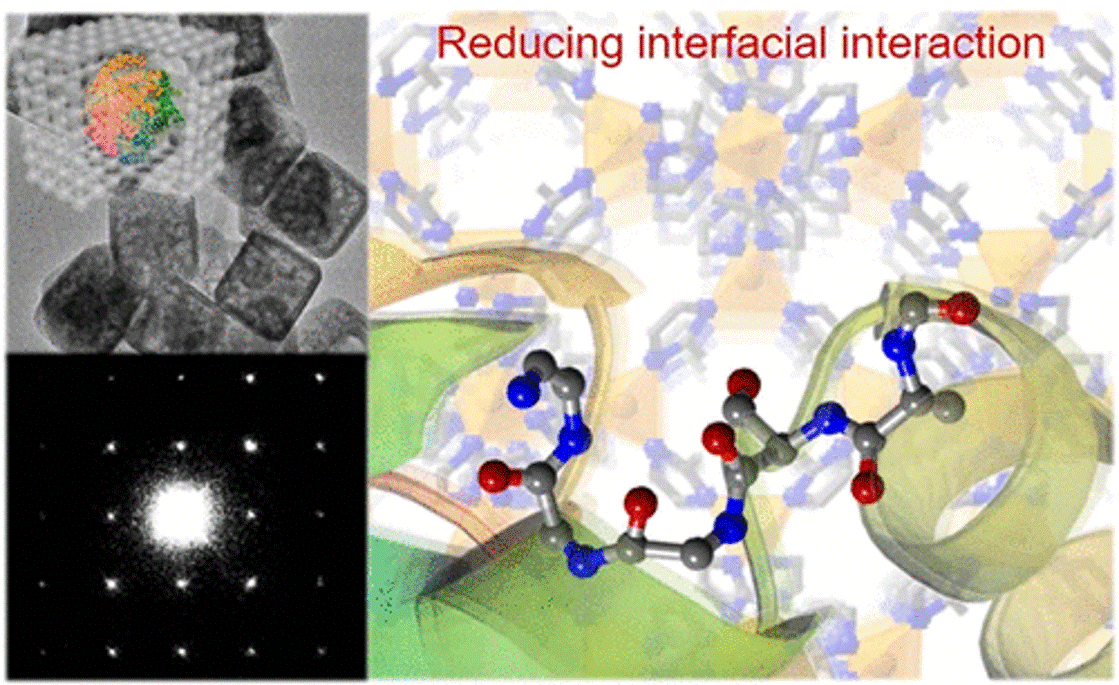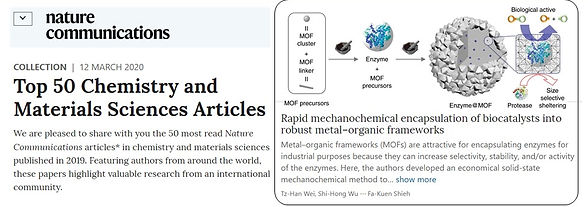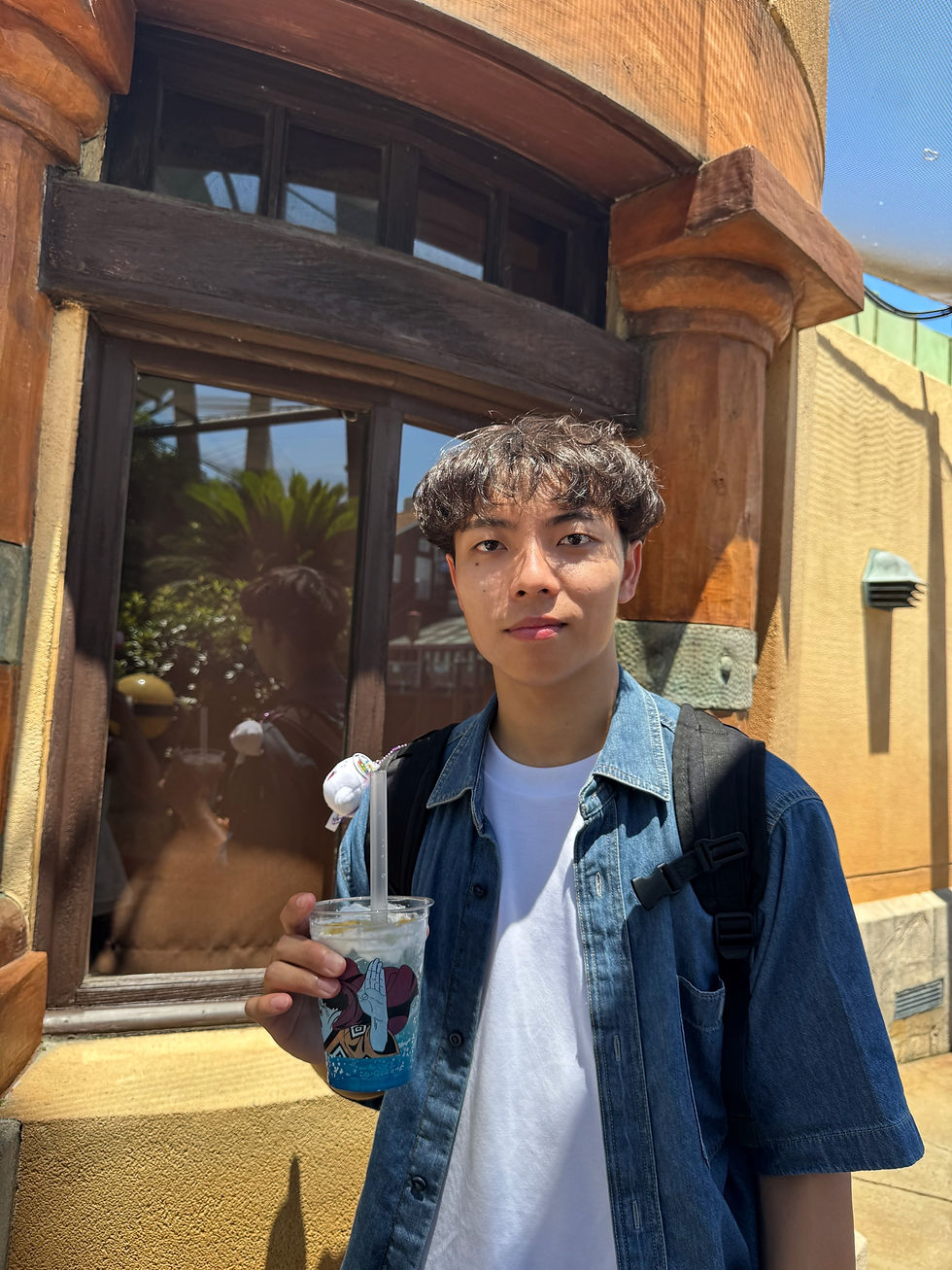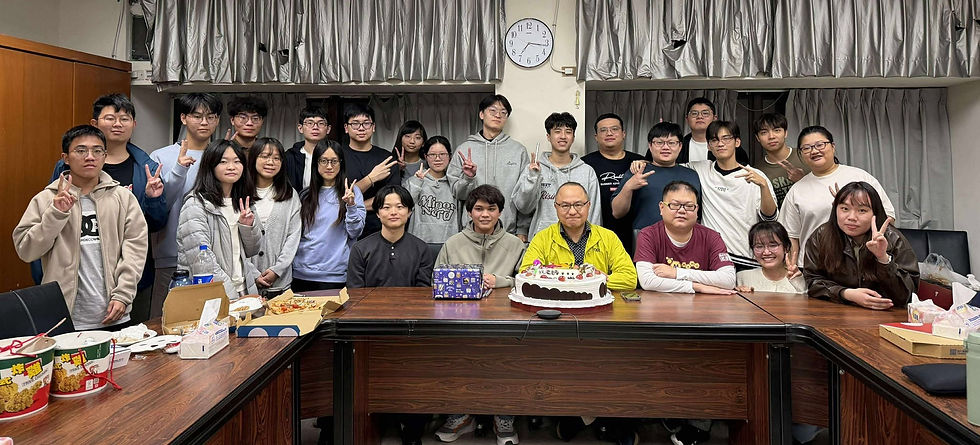Visiting Program in
Hiroshima University & Hokkaido University
In order to explore and broaden student's horizons, our lab provides a very good opportunity for exchanging senior graduate students to the Department of Chemistry in Hiroshima University and Hokkaido University, Japan. Usually, we will send one or two students abroad every semester. Really welcome to join our lab!
Our works
The ultimate goal of our research is to create novel biocomposites by combining biomacromolecules with Metal-Organic Frameworks (MOFs). MOFs act as a porous matrix capable of encapsulating enzymes, oligonucleotides, bacteria, etc. These biocomposites are expected to exhibit high-performance biological capabilities, enabling them to respond effectively to harsh environments in current industrial applications or cancer treatments.
The synthetic methods for biomacromolecules@MOFs biocomposites often employed in our laboratory are known as the “water-based and mechanochemical approach” or the “environmentally friendly system” technique. These unique polymerization routes, including the water-based and grinding techniques, allow for the adjustment of (a) morphology, (b) size, and (c) organization of the materials. The synthesized materials are analyzed using X-ray powder diffraction, nitrogen adsorption/desorption, thermogravimetric analysis (TGA), scanning electron microscopy (SEM) or transmission electron microscopy (TEM) imaging, and biological activity analysis.

Selected Publications

A Solid-State Crystallization Strategy for Direct Enzyme Encapsulation in Zr-MOFs: Eliminating Harsh pH and Thermal Requirements of Liquid-Phase Synthesis

Conventional syntheses of robust Zr-based metal-organic frameworks (Zr-MOFs) rely on harsh solvothermal conditions, precluding the inclusion of fragile functionalities such as enzymes or organisms. Therefore, developing routes to such stable frameworks under ambient conditions remains a significant challenge. More...
Angew. Chem. Int. Ed. 2025

Decoding the Biomimetic Mineralization of Metal–Organic Frameworks in Water

This study unveils the “green” metal–organic framework (MOF) structuring mechanism by decoding proton transfer in water during ZIF-8 synthesis. Combining in situ small- to wide-angle X-ray scattering, multiscale simulations, and quantum calculations, we reveal that the ZIF-8 early-stage nucleation and crystallization process in aqueous solution unfolds in three distinct stages. More...
ACS nano. 2024

Probing Interactions between Metal–Organic Frameworks and Freestanding Enzymes in a Hollow Structure

It has been reported that the biological functions of enzymes could be altered when they are encapsulated in metal–organic frameworks (MOFs) due to the interactions between them. Herein, we probed the interactions of catalase in solid and hollow ZIF-8 microcrystals. More...
Nano Lett. 2020

Rapid mechanochemical encapsulation of biocatalysts into robust metal–organic frameworks

Metal–organic frameworks (MOFs) have recently garnered consideration as an attractive solid substrate because the highly tunable MOF framework can not only serve as an inert host but also enhance the selectivity, stability, and/or activity of the enzymes. More...
Nat. Commun. 2019

Shielding Against Unfolding by Embedding Enzymes in Metal-Organic Frameworks via a de novo Approach

We show that an enzyme maintains its biological function under a wider range of conditions after being embedded in metal−organic framework (MOF) microcrystals via a de novo approach. More...
J. Am. Chem. Soc. 2017

Imparting Functionality to Biocatalysts via Embedding Enzymes into Nanoporous Materials by a de novo Approach: Size-Selective Sheltering of Catalase in Metal-Organic Framework Microcrystals

We develop a new concept to impart new functions to biocatalysts by combining enzymes and metal-organic frameworks (MOFs). The proof-of-concept design is demonstrated by embedding catalase molecules into uniformly sized ZIF-90 crystals via a de novo approach. More...
J. Am. Chem. Soc. 2015
Current Members
Advisor

PostDoc
Ph. D



Undergraduate
Graduate























